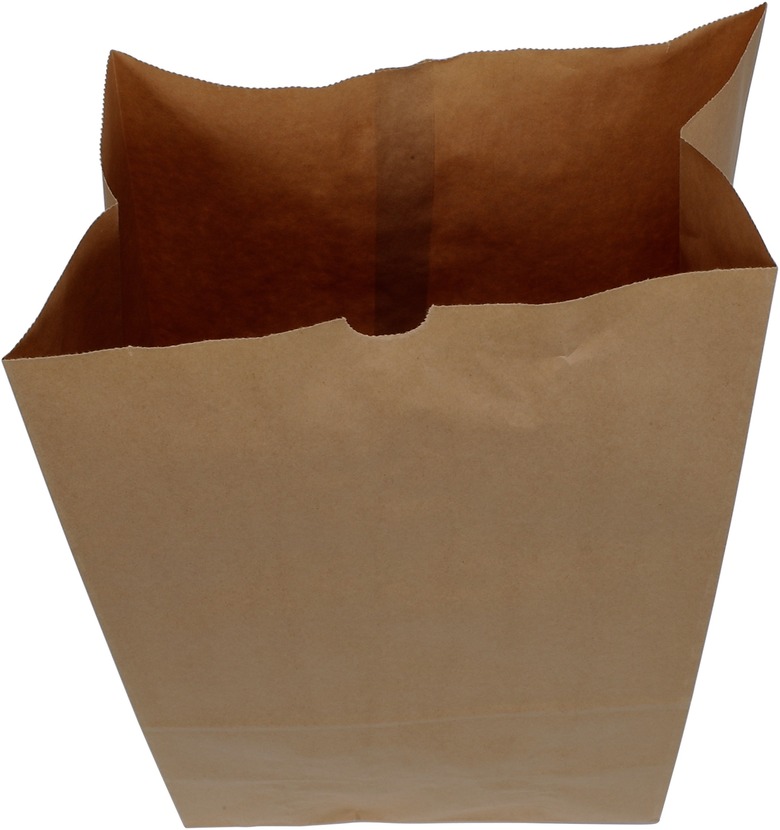What Are The Benefits Of Reuse?
Reusing an item several times before repurposing or recycling it prevents waste. Some easy-to-reuse items include containers and packaging materials such as bags and boxes. Some things are easier to reuse than others because they are flimsy or you need to dismantle them to get at the primary item. Flatten corrugated boxes, bags and plastic wraps for storage and reassemble them later when needed. Use caution when reusing items such as microwave dishes because they may begin to break down and release chemicals.
Saving Money
Saving Money
Reusing items saves you money. Rather than purchase new boxes when moving, reassemble those boxes you've flattened and stored and pack up your household goods. Utilize sturdy boxes for storing everything from paperwork to holiday ornaments. Paper bags flatten easily for later reuse. Take them back to the store with you to package up your groceries. Always check the bags for wear and tear before trusting them a third or fourth time, however. Businesses can benefit by reusing containers and paper as well. Companies often have to pay for trash disposal and throwing out less means lower costs. Flipping used paper over and printing on the other side saves money on buying new paper and disposing of used paper. Some small businesses offer a lower price to refill a container than to get a new one. This policy reduces the space that the business has to use to store empty containers and cuts back the amount of container stock that they have to order. These prices often result in savings for both the business owner and the customer.
Landfills
Landfills
Another advantage of reusing items is that it reduces the amount of material sent to the landfill. Landfills are filling up at a rapid rate, necessitating more landfill creation. Each time that you reuse an item, it is the same as not sending that item to a landfill. If you reuse a something six times before having to throw it out, your actions equate to not disposing of five of those items. Some items, such as printer cartridges, need to be refilled before reuse, while others may need repaired. Repairing electronics may not save much money but will still reduce landfill disposal. Of course, it's best if you can recycle that material when its past its useable lifespan.
Raw Materials
Raw Materials
Reusing items reduces the number of those items that suppliers need to make. Items such as wood pallets and unrecycled paper products cause the harvesting of more trees. Other items, such as plastic wrap or plastic drink bottles, use crude oil as raw materials. Instead of throwing out those plastic forks and spoons, wash them and use them again to save more oil. Paperclips can be used many times before throwing them out, thus reducing metal mining. You can easily reuse binders by just emptying them and slipping in a new cover page. Binders use trees for the cardboard backing, oil for the plastic cover and iron for the steel rings.
Energy
Energy
Moving new packaging materials around requires the use of fuel. Large trucks burn fuel moving the raw materials to the plant and then deliver the finished products to your local store. Not only transportation burns fossil fuels. Manufacturing processes also require energy, which is often provided through coal or natural gas. Even though a single item may not save much gasoline, a lifetime habit of reuse will add up, especially as more people develop a habit of reusing items.
Cite This Article
MLA
Rose, Kasandra. "What Are The Benefits Of Reuse?" sciencing.com, https://www.sciencing.com/benefits-reuse-4586/. 24 April 2017.
APA
Rose, Kasandra. (2017, April 24). What Are The Benefits Of Reuse?. sciencing.com. Retrieved from https://www.sciencing.com/benefits-reuse-4586/
Chicago
Rose, Kasandra. What Are The Benefits Of Reuse? last modified March 24, 2022. https://www.sciencing.com/benefits-reuse-4586/
